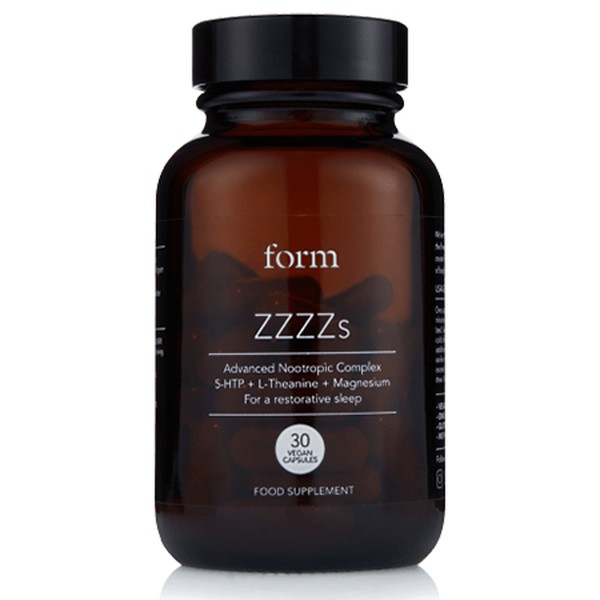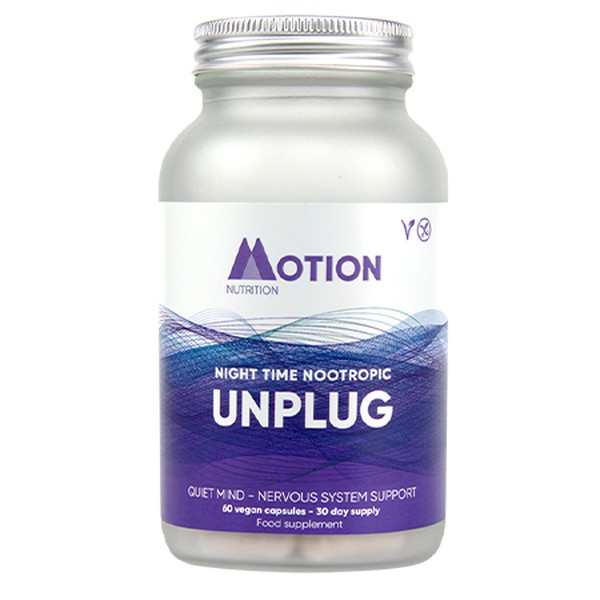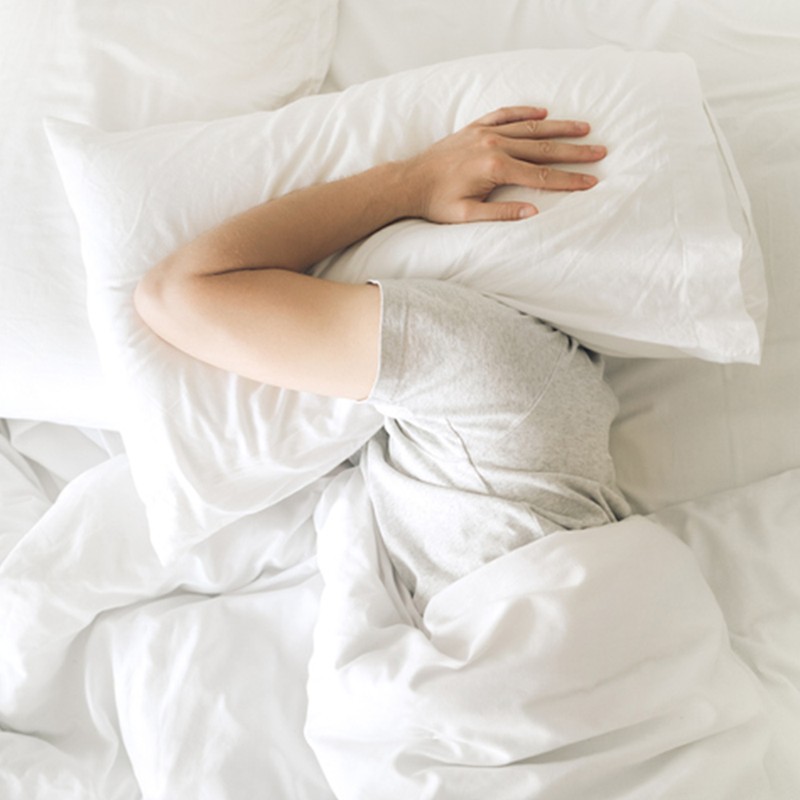10 Sleep Tips You Haven’t Heard Before
Turn Down The Lights
“Everyone has something close to a 24-hour rhythm in their cells and tissues, which controls the timings of numerous bodily processes – from when we feel sleepy and awake, to the release of various hormones, to the activity of our immune cells. Today, as we light up our evenings with electric lights, and spend much of our daytimes indoors, our light exposure is more similar during the day and night, so our circadian rhythm begins to flatten. To give you an example, we measure brightness in a unit called Lux: in many offices, it is around 200lx during the daytime; on a gloomy day in winter, it is around 5,000lx outdoors. If we are seeing light later, we won’t become sleepier until later, which can mean we cut short our sleep. Try to brighten your days by spending as much time outdoors as you can, and keep the evenings dim. It doesn’t have to be candles, but warmer, dimmer lighting is what we should be aspiring to.” – Linda Geddes, author of Chasing The Sun
Think About Micronutrients
“Sleep is a time of intense neurological activity, a rich time of renewal, memory consolidation, brain and neuro-chemical cleansing, and cognitive maintenance. Filling up on sleep-enhancing nutrients and eating a healthy diet is really important when it comes to quality of sleep. Avoid the obvious stimulants like caffeine and sugar, and ensure you are getting enough sleep-inducing micronutrients: vitamin C, tryptophan, potassium, melatonin and vitamin B6. A good place to start is a nutrient-dense smoothie designed for better sleep: blend together strawberries (for vitamin C), almond milk and one tablespoon of almond butter (for tryptophan), avocado (for potassium), pineapple (for melatonin) and spinach (for B6). Try to drink this before 1pm for the best results.” – Lily Simpson, founder of The Detox Kitchen
Disconnect The Tech
“Electromagnetic frequencies (EMFs) are emitted by technology including microwaves, televisions, wireless devices, smartphones, Apple watches and computers. All of this adds up to a background ‘electro smog’ that passes through the body. Electromagnetic radiation penetrates not just our organs and cells but our bones too, interfering with the body’s natural, biological processes, including sleep. To combat EMFs, set a time each evening for an electronic sundown. Turn off appliances and devices, unplugging them if possible. Remove any electrical devices from your bedroom; avoid wearing any digital devices on your body when you sleep; and turn your phone off fully rather than switching it to airplane mode.” – Danielle North, author of Sleep Meditations
Eat Like Your Ancestors
“When we eat can also shift the timing of the clocks in some of our tissues, so irregular mealtimes can also cause circadian desynchrony and disruption. There’s also mounting evidence that eating late at night is associated with weight gain, and puts you at a greater risk of heart disease and diabetes. I personally try to match my meals with when our ancestors ate, i.e. during the daytime and not at night.” – Linda
Clock The Caffeine
“We all know we should cut caffeine out for better sleep, but timing your caffeine consumption with your circadian clock really is vital, especially as a late-in-the-day caffeinated beverage can inhibit melatonin production, meaning you’ll struggle to fall asleep. Caffeine has a half-life of five to seven hours, meaning you feel the immediate effects for up to seven hours, but it remains active in your system for up to 14 hours. Try to be mindful of when you are consuming caffeine, aiming to consume it when your cortisol levels naturally dip – ideally between 9am and 11.30am.” – Hope Bastine, mindfulness & sleep psychologist
Calm Yourself
“Be mindful of your levels of stimulation throughout the whole day. Often, we think it’s the hour before bed that needs to be calming but, in times of anxiety, we need micro-moments of calm dotted through our day to promote the chance of good sleep at night. Our visual and auditory diet makes a huge difference to how we feel, so make mindful choices about what you listen to, watch and read.” – Suzy Reading, chartered psychologist
Consider Adaptogens
“Ashwagandha, a powerful adaptogen, helps me get a good night’s sleep. Ashwagandha has unique properties that help the body’s adrenal system regulate hormones to better cope with stress. LYMA, a super multivitamin supplement, is packed with KSM-66 ashwagandha, the most potent form of the herb that’s highly bioavailable (meaning it is easily absorbed by the body). I fall asleep more easily and sleep more deeply when taking LYMA.” – Nahid de Belgeonne, founder of The Human Method
Don’t Forget To Breathe
“I often hear from clients that things like breathing can seem small but make a real difference. When we breathe deeply, allowing the belly to expand on the in-breath and go in again on the out-breath, it calms the nervous system. It takes us from fight-or-flight mode to ‘rest and digest’. Taking some breaths as you lie in bed before sleep can help settle the nervous system. Also consider ‘brain-dumping’ your thoughts into a notebook before bed. Write down anything that’s bothering you, to-dos for the following day and any repetitive thoughts. Once they’re written down, we can more easily let them go and sleep more easily.” – Chloe Brotheridge, hypnotherapist, coach & author
Try A New Pillow Position
“To give yourself a more supported sensation when you sleep, consider some different pillow positions. Side sleepers: try putting a pillow under your head as usual, as well as a pillow between the knees. Back sleepers: use a lower pillow than normal under your head and place a pillow under your knees to take the pressure off. Stomach sleepers: consider using a flat pillow for your head, placing another pillow under the pelvis or abdomen.” – Danielle
Brew A Hot Drink
“I brew Wunder Workshop’s Golden Spirit Tea for six minutes and drink it just before bed to help me unwind into a deep and uninterrupted sleep. The adaptogenic qualities of tulsi (often referred to as holy basil) in combination with stress-relieving and immune-boosting herbs such as soursop, moringa and turmeric can naturally bring on lucid dreams. It’s a deeply soothing blend of herbs.” – Zoe Lind van’t Hof, co-founder of Wunder Workshop
Supercharge your slumber with these expert-approved formulas…






*Features published by SLMan are not intended to treat, diagnose, cure or prevent any disease. Always seek the advice of your GP or another qualified healthcare provider for any questions you have regarding a medical condition, and before undertaking any diet, exercise or other health-related programmes.
DISCLAIMER: We endeavour to always credit the correct original source of every image we use. If you think a credit may be incorrect, please contact us at [email protected].


